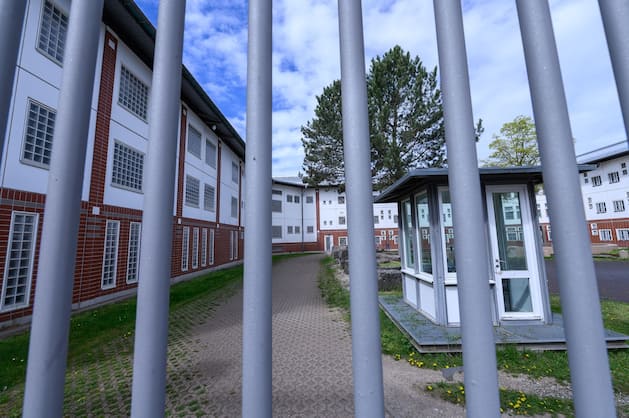According to the Federation of Prison Servants, around 2,000 positions are vacant in prisons in Germany. This has a particularly psychological effect on the occupants.
According to the Federation of Prison Servants, there are around 2,000 vacancies in German prisons. “If you take all the professions in prison and what we believe to be the increased need for staff, this number could be doubled again,” said Federal Chairman René Müller of the German Press Agency in Berlin. “But we don’t get any more applicants.”
According to the Federal Statistical Office, there were more than 56,000 prisoners nationwide at the end of June last year. According to Müller, prisons across Germany have around 38,000 prison employees. In Germany, the execution of sentences is a matter for the federal states. The Federation of Prison Servants is a trade union.
According to the trade unionist, the number of staff is already having an effect on the work of the penal system. “Resocialization only takes place on paper.” But this is “our second main task,” said Müller. “If one officer is responsible for up to 70 prisoners, what conversations should take place there?”
In addition, the number of people with mental health problems has increased. “We have no places in the correctional facility, the psychiatric wards are also full.” According to Müller, there are also former supporters of the terrorist militia Islamic State (IS), who have returned to Germany. In this context, Müller spoke out in favor of the creation of federal detention facilities for extremists and dangerous individuals – “that is, in the field where the Federal Public Prosecutor’s Office is active”. Central bundling would also relieve smaller institutions.
According to Müller, the number of serious attacks on prison staff has increased. It was not until mid-December that the right-wing extremist Halle assassin took two employees hostage in a high-security prison in Burg near Magdeburg. He was then relocated. “Newcomers get that too. What would attract someone to work in the correctional system?”
“The justice ministries of the federal states have recognized the problem. They do everything to fill courses,” said the trade unionist. “But the courses are no longer full.” Müller called for higher salaries for the employees and the expansion of job prospects in order to make the profession more attractive.








